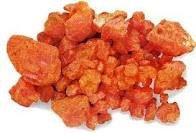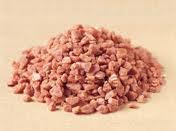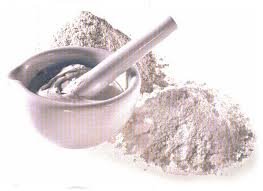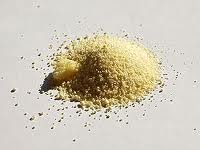Showing 667–675 of 1312 results
-
Kali arsenicosum
Fowler’s Solution
(KALI ARSENICUM)The Kali ars patient tends towards malignancy, and inveterate skin diseases. He is restless, nervous and anæmic.
-
Kali bichromicum
Bichromate of Potash
(KALI BICHROMICUM)The special affinities of this drug are the mucous membrane of stomach, bowels, and air-passages; bones and fibrous tissues. Kidneys, heart, and liver are also affected. Incipient parenchrymatous; nephritis. Nephritis with gastric disturbances. Cirrhosis of liver. Anæmia and absence of fever are characteristic. General weakness bordering on paralysis. It is especially indicated for fleshy, fat, light complexioned persons subject to catarrhs or with syphilitic or scrofulous history. Symptoms are worse in the morning;pains migrate quickly, rheumatic and gastric symptoms alternate. More adapted to subacute rather than the violent acute stage. Mucous membranes everywhere are affected. Catarrh of pharynx, larynx, bronchi and nose, and a tough, stringy, viscid secretion is produced, which condition is a very strong guiding symptom for this drug.Perforation of the septum. Chronic atonic catarrh. Polypus. Dilatation of stomach and heart.
-
Kali bromatum
Bromide of Potash
(KALI BROMATUM)Like all Potash Salts, this weakens the heart and lowers temperature. Brominism is caused by it. General failure of mental power, loss of memory, melancholia, anæsthesia of the mucous membranes, especially of eyes, throat, and skin; acne; loss of sexual desire, paralysis. Leading remedy in psoriasis. Nodular form of chronic gout. Symptoms of apoplectic attacks, uræmic or otherwise; somnolence and stertor, convulsions, aphasia, albuminuria. Epilepsy (with salt-free diet).
-
Kali carbonicum
Carbonate of Potassium
(KALI CARBONICUM)The weakness characteristic of all Potassium Salts is seen especially in this, with soft pulse, coldness, general depression, and very characteristic stitches, which may be felt in any part of the body, or in connection with any affection. All Kali pains are sharp and cutting; nearly all better by motion. Never use any Salts of Potash where there is fever (T. F. Allen). Sensitive to every atmospheric change, and intolerance of cold weather. One of the best remedies following labor. Miscarriage, for consequent debilitated states. Early morning aggravation is very characteristic. Fleshy aged people, with dropsical and paretic tendencies. Sweat, backache, and weakness. Throbbing pains. Tendency to dropsy. Tubercular diathesis. Pains from within out, and of stinging character. “Giving-out” sensation. Fatty degenerations. Stinging pains in muscles and internal parts. Twitching of muscles. Pain in small spot on left side Hypothyroidism. Coxitis.
-
-
Kali chloricum
Chlorate of Potassium-K clo. 3
(KALI CHLORICUM)Acts very destructively upon the kidneys, producing a croupous nephritis, hemoglobinuria, etc. Parenchymatous nephritis with stomatitis. Produces most acute ulcerative and follicular stomatitis. Noma. Toxæmic conditions of pregnancy (urinary symptoms). Chronic nephritis; hepatitis. Septicæmia. Anæmia.
-
-
Kali cyanatum
Potassium Cyanide
(KALI CYANATUM)Sudden sinking sensation. Cancer of tongue and agonizing neuralgia have been benefited by this drug. Sick headache; sciatica; epilepsy.
-







